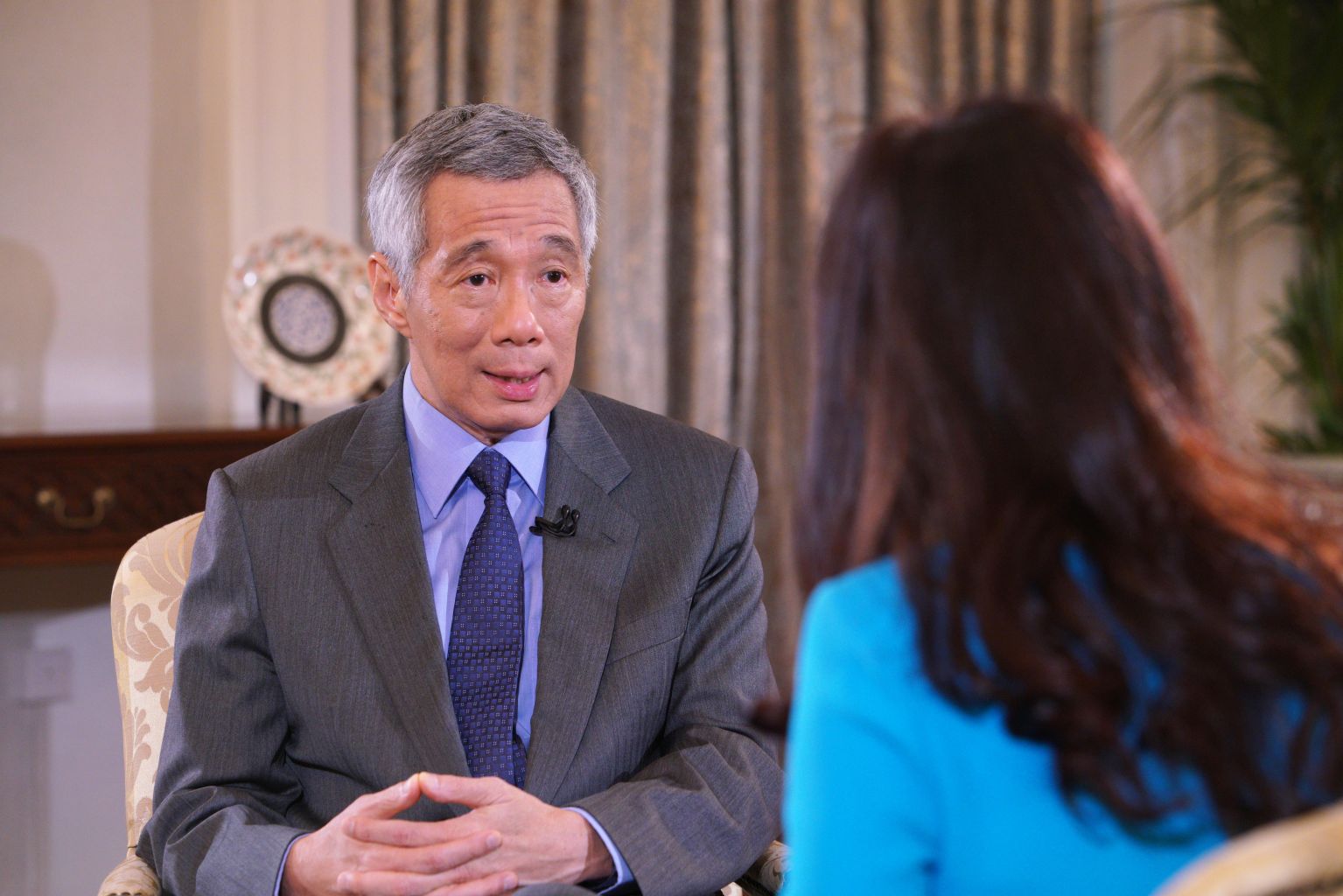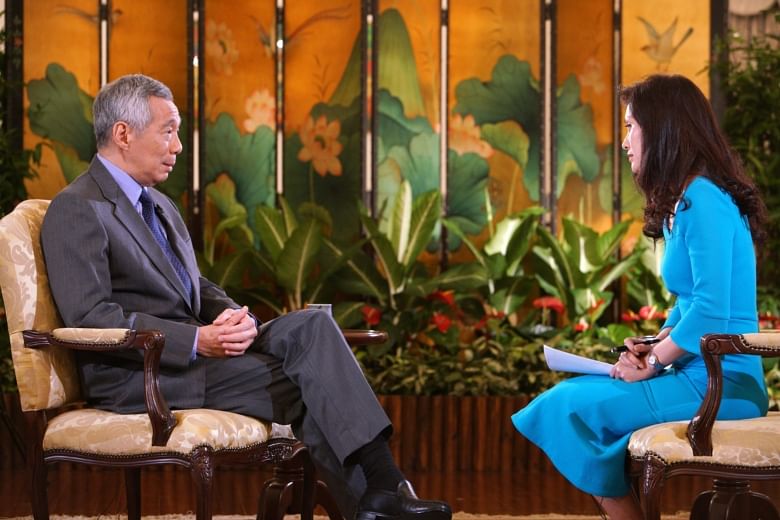North Korea situation poses wider dangers to regional and global security: PM Lee Hsien Loong
Sign up now: Get ST's newsletters delivered to your inbox

CNBC anchor Christine Tan speaks with PM Lee Hsien Loong regarding the North Korea situation.
PHOTO: PRIME MINISTER'S OFFICE
SINGAPORE - North Korea's ongoing nuclear provocations do not just pose an immediate danger to the region, but could shift the strategic balance in North-east Asia and raise tensions in the longer term, Prime Minister Lee Hsien Loong has said.
He noted that Pyongyang's recent nuclear tests have seen the South Koreans and Japanese looking at what they need to do to protect themselves against the threat from their rogue neighbour, in particular by developing some form of nuclear capability.
"If it goes that way, and South Korea and Japan go closer to be in nuclear power or actually cross the threshold, it means a different strategic and security balance in North-east Asia," he said.
"More risky, more tense, and the Chinese will be very alarmed. And I do not think it will make for a safer world. There will be implications elsewhere in the world."
Mr Lee made his first detailed comments on the issue since Pyongyang began stepping up nuclear tests this year in an interview with American news channel CNBC that was released on Friday (Oct 20), ahead of his visit to Washington next week.
They came as Pyongyang warned on Thursday that it would unleash an "unimaginable strike at an unimaginable time", as American military forces conduct ongoing joint exercises with Seoul.

CNBC anchor Christine Tan asked Mr Lee about the recent exchange of words between US President Donald Trump and North Korean leader Kim Jong Un, and whether he was worried about North Korea and its provocations.
PM Lee noted that brinkmanship has been part of the North Korean issue for a long time.
"It's part of the game: You make a threat, you posture, you make a risky move, you hope that the other side will then do something to placate you, or to give you some advantage in exchange for good behaviour. Then after some time, it starts again. So it's not the first time," he said.
"What is different this time is that North Korea has more nuclear weapons, they've conducted more nuclear tests. They are developing their missile technology, particularly the ICBM (intercontinental ballistic missile) technology, and so the risks are higher.
"But the danger is not just the immediate alarums but also the longer-term trends, which are set off in North-east Asia, if things persist in this direction.
"Because with North Korea going this way, the South Koreans are asking themselves, 'What can we do? The Americans have removed their tactical nuclear weapons from South Korea. Now what do we do? Do we ask the Americans to bring them back? Do we, the South Koreans, think of developing some capability?'"
He noted that 60 per cent of South Koreans now think that they should have some kind of nuclear capability.
Likewise, Japan, which has very strong anti-nuclear public sentiment, will be forced to think about the possibilities and the unthinkable, and what they may need to do to protect itself, he added. He noted that a former Japanese defence minister had recently wondered if they "should ask the Americans to bring their nuclear weapons and put them in Japan".
"The government said, 'no, we shouldn't'," Mr Lee noted.
"But these are thoughts which cannot be completely suppressed," he said.
Several commentators have also suggested it might be a good thing for regional security if Tokyo and Seoul had nuclear capabilities - among them US academic Walter Russell Mead and Singapore Ambassador-at-large Bilahari Kausikan.
Pyongyang has conducted six nuclear tests to date, the latest last month, involving a hydrogen bomb that caused an earthquake of 6.3 magnitude, drawing concern and consternation from its neighbours as well as the United States and other countries.
Asked whether Mr Trump's visit to next month's Asia-Pacific Economic Cooperation summit in Vietnam and Asean summit in the Philippines would be hijacked by the North Korean issue, Mr Lee said he was sure it would be on the agenda.
"It is very high on the US agenda. President Trump himself is very seized with it. Asean is also focused on this, although Asean's influence in these matters must be limited," he said.
Mr Lee was also asked how he would respond to Mr Trump's comment that "China is the lynchpin to solving the North Korean crisis".
Mr Lee said China has a major role to play - it shares a border with North Korea, and is a big part of North Korea's external trade.
"And so they have influence over North Korea. But I would not say that the North Koreans will do anything that the Chinese want them to do. Big countries know that small countries can be quite obstreperous," he said.
Does he feel that China should play a bigger role in resolving the nuclear crisis in North Korea, Ms Tan, the CNBC anchor, asked.
"The Chinese have complex calculations to balance. They are living there with the neighbour. They do not want to destabilise the neighbour," Mr Lee replied.
"At the same time, I think they cannot be at all happy with the way things are going with nuclear tests and with missile tests. It must worry them a great deal."


